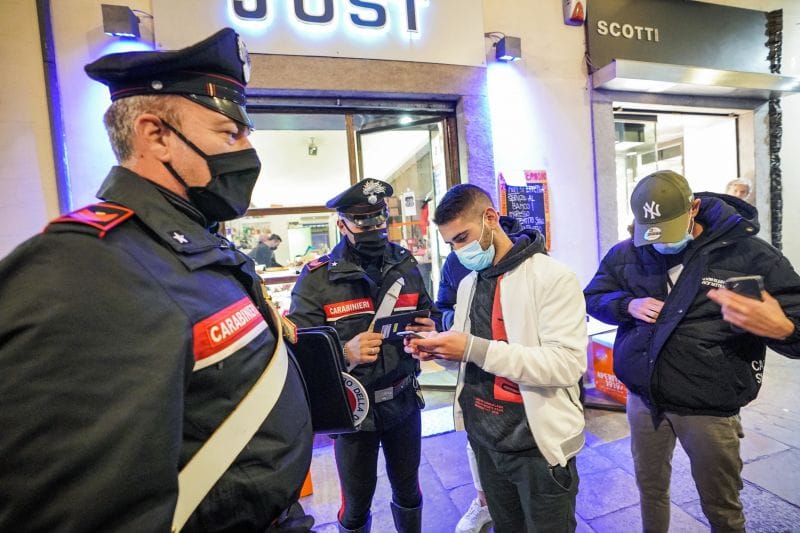The government officials in Italy announced today that the nationwide COVID-19 state of emergency, due to expire on December 31, 2021, has been extended until March 31, 2022.
The country’s government, on Tuesday, approved a new decree authorizing the extension of the national state of emergency for another three months.
New decree confirms the Italian government’s special powers in terms of anti-COVID-19 rules and regulations, and health crisis management.
The decree allows the central government to keep in place the latest anti-COVID-19 restrictions issued to contain the fourth pandemic wave during the Christmas and New Year holidays.
Among such rules is the mandatory use — from December 6 to January 15 at least — of a “ngafe akwụkwọ ndụ akwụkwọ ndụ dị ukwuu” – the certificate that shows proof that a person has been vaccinated or has recovered from the COVID-19 in the last six months, in order to access public venues such as restaurants and bars, movie theaters, gyms, nightclubs and stadiums.
Non-vaccinated people will still be required to show a “normal” green pass (which includes proof of a negative COVID test) to access any other venues and to use public transportation.
According to the Italian legislation, the state of emergency allows the cabinet to legislate and act faster, avoiding lengthy bureaucratic procedures, but only in the sectors related to the emergency.
The decision to extend the state of emergency was widely accepted across Italy‘s political spectrum and beyond the government coalition.
This broad consensus would likely help Prime Minister Mario Draghi’s cabinet, since the decree will have to be voted and approved by the parliament through a specific law.
By law, a state of emergency can be declared in Italy for 12 months, and possibly extended for another 12 months, making a maximum of 2 years.
During the COVID-19 pandemic, the emergency was firstly declared on January 31, 2020 – when the first COVID-19 cases were registered in Rome – for a period of six months and then extended several times.
In order to keep the state of emergency in place beyond the 2-year period, a specific bill will have to be approved by both chambers of the country’s parliament.
IHE Ị GA-Ewepụ na edemede a:
- In order to keep the state of emergency in place beyond the 2-year period, a specific bill will have to be approved by both chambers of the country’s parliament.
- According to the Italian legislation, the state of emergency allows the cabinet to legislate and act faster, avoiding lengthy bureaucratic procedures, but only in the sectors related to the emergency.
- The certificate that shows proof that a person has been vaccinated or has recovered from the COVID-19 in the last six months, in order to access public venues such as restaurants and bars, movie theaters, gyms, nightclubs and stadiums.























